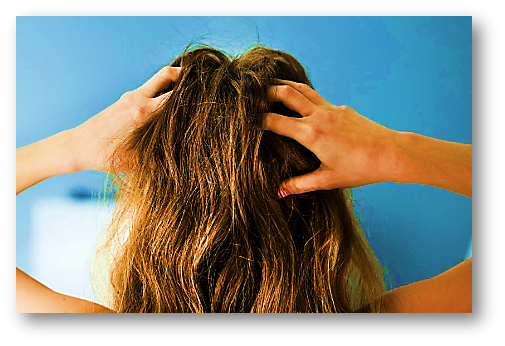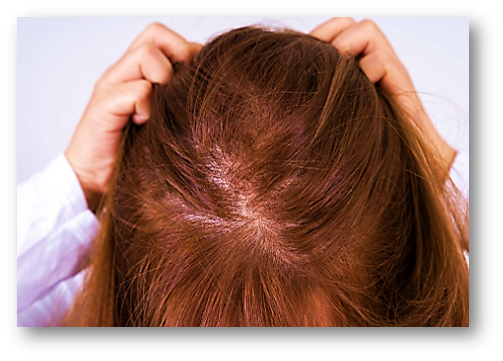Hairs are thin, thread-like structures that grow from the skin of animals, including humans. They serve a variety of functions, including providing insulation, protecting against physical damage, and helping to regulate body temperature. Hairs are made up of a protein called keratin, and they grow from a small tube-like structure called a hair follicle. The structure of hairs can vary widely among different species, and they can be found on various parts of the body, including the head, eyebrows, and eyelashes in humans. Hairs can be styled and groomed in a variety of ways, and they can be an important part of a person’s appearancehair care.

HAIR PROBLEMS FOR MALES AND FEMALES
Both males and females can experience a variety of hair problems, including:
Hair loss:
This can occur due to a variety of factors, including genetics, hormonal changes, certain medications, and certain medical conditions.
Dry or damaged hair:
This can be caused by using heat-styling tools too frequently, using harsh chemicals, or exposing the hair to extreme temperatures.
Dandruff:
This is a common condition characterized by flaky, white, or yellowish scales on the scalp. It can be caused by a variety of factors, including dry skin, irritation, or certain medical conditions.
Oily hair:
This occurs when the scalp produces too much oil, which can lead to greasy-looking hair and an oily scalp.
Frizzy hair:
This occurs when the hair is dry and lacks moisture, causing it to become brittle and prone to tangles and frizz.
Both males and females can also experience hair problems due to poor hair care habits, such as using the wrong products, not washing the hair frequently enough, or brushing the hair too tightly. It is important to choose hair care products that are appropriate for your hair type and to practice good hair care habits to help prevent these problems. If you are experiencing a hair problem that persists or is severe, it is important to speak with a healthcare provider for a proper diagnosis and treatment plan.
HAIR DISEASES
There are a number of medical conditions that can affect hair, including:
Alopecia:
A condition that causes hair loss, which can be temporary or permanent.
Telogen effluvium:
A condition in which the hair goes into a resting phase and falls out, often as a result of stress, illness, or hormonal changes.
Trichotillomania:
A condition in which a person compulsively pulls out their own hair, leading to hair loss.
Scalp infections:
Infections of the scalp, such as folliculitis, can cause hair loss and other symptoms.
Nutritional deficiencies:
a lack of certain nutrients, such as iron, can lead to hair loss.
Hormonal imbalances:
Changes in hormones, such as during pregnancy or menopause, can cause hair loss.
Medications:
Some medications, such as chemotherapy drugs, can cause hair loss as a side effect.
If you are experiencing hair loss or other abnormalities with your hair, it is important to speak with a healthcare provider for a proper diagnosis and treatment plan.
HAIR CARE

There are many ways to care for your hair to keep them healthy and looking good. Some tips for hair care include:
- Use a quality shampoo and conditioner that is appropriate for your hair type.
- Avoid using hot water when washing your hair, as this can strip the hair of its natural oils.
- Avoid using heat styling tools too frequently, as this can damage the hair. If you do use heat styling tools, use a heat protectant product.
- Avoid using harsh chemicals, such as hair dyes and relaxers, as these can damage the hair.
- Avoid brushing your hair too tightly, as this can cause breakage.
- Trim your hair regularly to remove split ends and promote healthy growth.
- Drink plenty of water and eat a healthy diet to keep your hair healthy from the inside out.
By following these tips, you can help keep your hair looking and feeling its best.
EAT BEST FOR YOUR HAIR THAN APPLYING LOTS OF PRODUCTS
Eating a healthy diet is important for maintaining the overall health of your body, including your hair. Some nutrients that are important for hair health include:
Protein: hairs
Hair is made up of a protein called keratin, so it is important to consume enough protein to support hair growth and repair. Good sources of protein include meat, poultry, fish, beans, and nuts.
Iron: hairs
Iron is necessary for carrying oxygen to the hair follicles, which helps to keep the hair healthy. Good sources of iron include red meat, poultry, beans, and leafy green vegetables.
Vitamin A: hairs
Vitamin A helps to keep the scalp healthy, which can support healthy hair growth. Good sources of vitamin A include sweet potatoes, carrots, and leafy green vegetables.
Vitamin C: airstairs
Vitamin C helps to support the production of collagen, which is necessary for healthy hair. Good sources of vitamin C include oranges, strawberries, and bell peppers.
B vitamins:
B vitamins, such as B12 and biotin, are important for hair health. Good sources of B vitamins include meat, dairy, and leafy green vegetables.
Eating a varied diet that includes these nutrients can help support healthy hair growth and maintenance. It is also important to drink plenty of water to keep the hair and scalp hydrated. While using hair care products can be helpful, it is important to choose products that are gentle and free of harsh chemicals and to avoid overusing them, as this can strip the hair of its natural oils and cause damage.
RECOMMENDED HOME REMEDIES FOR HAIR CARE
There are many home remedies that you can try to help care for your hair and address common hair problems. Some options include:
Coconut oil:
Coconut oil is a natural moisturizer that can help to nourish and hydrate the hair. You can apply it to your hair and scalp and leave it on for a few hours before shampooing it out.
Apple cider vinegar:
Apple cider vinegar can help to remove build-up from the hair and improve its overall health. Mix equal parts water and apple cider vinegar and use it as a final rinse after shampooing.
Olive oil: hairs
Olive oil is a natural moisturizer that can help to nourish and hydrate the hair. You can apply it to your hair and scalp and leave it on for a few hours before shampooing it out.
Egg: hairs
Eggs are a good source of protein and can help to nourish the hair. You can mix an egg with a little bit of water and apply it to your hair and scalp, leaving it on for a few minutes before shampooing it out.
Avocado:
Avocado is a good source of healthy fats and can help to nourish the hair. You can mash an avocado and mix it with a little bit of water, then apply it to your hair and scalp and leave it on for a few minutes before shampooing it out.
It is important to keep in mind that home remedies may not work for everyone and that some ingredients may not be suitable for all hair types. If you are experiencing a severe or persistent hair problem, it is important to speak with a healthcare provider for a proper diagnosis and treatment plan.
MYTH ABOUT HAIR CARE hairs
There are many myths about hair care that are not supported by scientific evidence. Some common myths include:
Cutting your hair frequently makes it grow faster:
Hair grows from the hair follicle, which is located beneath the scalp. Cutting your hair does not affect the rate at which it grows.
Brushing your hair 100 strokes a day promotes healthy hair: hairs
Brushing your hair too frequently or with too much force can cause damage and breakage. A gentle brush or comb is sufficient for most people.
Shampooing your hair every day is necessary: hairs
Shampooing your hair every day is not necessary for most people, as it can strip the hair of its natural oils. It can be used every other day or every three days is usually sufficient.
Using cold water to rinse your hair promotes healthy hair:
There is no scientific evidence to suggest that using cold water has any specific benefits for the hair. It is generally more comfortable to use lukewarm water when washing your hair.
Split ends can be repaired: hairs
Split ends occur when the hair shaft becomes damaged and splits. Once the hair is split, it cannot be repaired and must be trimmed.
It is important to be skeptical of hair care myths and to base your hair care practices on scientific evidence and the recommendations of a healthcare professional.
HAIR FALL
Hair fall, also known as hair loss or alopecia, is a common problem that can affect people of all ages. There are many potential causes of hair fall, including genetics, medical conditions, and certain medications. Some people may also experience hair fall as a result of physical or emotional stress, a poor diet, or improper hair care practices.
There are several things you can try to help prevent or reduce hair fall. These include:
- Eating a healthy diet that includes a variety of nutrients, including protein, iron, and vitamins A and D
- Avoiding harsh hair care practices, such as using heat styling tools excessively or applying chemicals to your hair frequently
- Using a gentle shampoo and conditioner and avoiding over-washing your hair
- Avoiding tight hairstyles that pull on your hair
- Reducing stress through relaxation techniques, such as meditation or yoga
- Seeing a healthcare provider to rule out any underlying medical conditions that may be causing hair fall
If you are experiencing significant or persistent hair fall, it is a good idea to speak with a healthcare provider or a dermatologist. They can help diagnose the cause of your hair fall and recommend the appropriate treatment.
LONG HAIR AND BEAUTY!!
The idea that long hair is a sign of beauty is a cultural construct and can vary widely among different societies and time periods. In some cultures, long hair is traditionally seen as a sign of femininity and beauty, while in others, short hair is more highly prized. https://www.mdpi.com/2079-9284/6/1/13 Additionally, personal preferences, and individual beauty standards can also play a role in what is perceived as attractive.
It is important to remember that beauty is subjective and that there is no one “right” way to have hair. What is most important is that you feel confident and comfortable in your own skin and with your own appearance, regardless of your hair length or any other physical characteristic. It is also important to remember that true beauty comes from within and is not determined by external appearances.
KEYWORDS: hair care routine, hair care tips, hair care products, hair care for damaged hair, hair care for curly hair, hair care for dry hair, hair care for oily hair, hair care for color-treated hair, hair care for thinning hair, hair care for dandruff.
REFERENCES:
https://www.cidjournal.com/article/S0738-081X(00)00133-4/fulltext
https://www.sciencedirect.com/science/article/abs/pii/S0733863505702163


Pingback: DRY FRUITS-THE PERFECT WINTER SNACK!! - Life Biologs
Pingback: DANDRUFF AND ANTI DANDRUFF!! - Life Biologs
Pingback: SKIN CARE- HEALTHY TIPS!! - Life Biologs